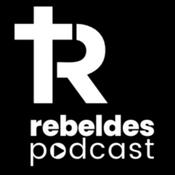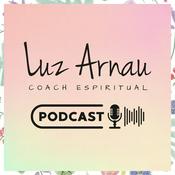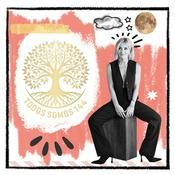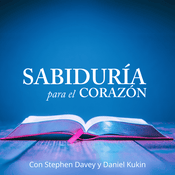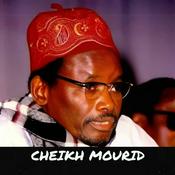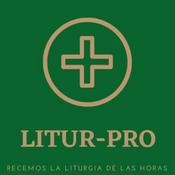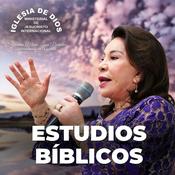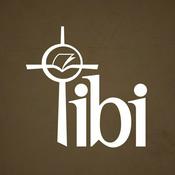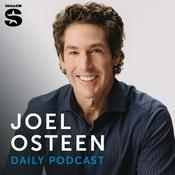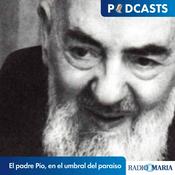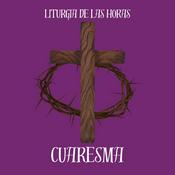43 episodios
- A bizarre moment in the Manna story occurs when the Jews lament that they should have been killed in Egypt by “the hand of God.” Was this a hand that benevolently pulled the Jews out of Egypt, or that hand that smote the Egyptian firstborn? How do we teach our children the truth of that fateful night of the Exodus? Our season finale tackles the big questions of food, trauma, and the Exodus.
We love to hear from you! Click here to share your thoughts, insights, questions, and reactions by voice note, or send us an email at [email protected].
A Book Like No Other is a product of Aleph Beta, and made possible through the generous support of Shari and Nathan Lindenbaum. Aleph Beta is a Torah media company dedicated to spreading the joy and love of meaningful Torah learning worldwide. - In this episode Rabbi Fohrman puts the bitter herbs - maror - under a microscope. Why do we need to hold onto a reminder of our slavery, during a Passover seder that represents freedom? Drawing from a principle of teshuvah - repentance, our hosts carve out an incredible principle in human psychology and what it takes to heal from trauma.
Can't Skip the Bitter (to Get to the Sweet)
(Verse 1) In Egypt the bread held the taste of our tears
Sourdough—you couldn't tell where it stopped
The sourness baked into four hundred years
Until the whole batch was bitter and locked
But God didn't hand us the honey that night
Didn't say: forget it, here's something new
He gave us flat bread with bitter alongside—
Separated. Still there. Still true.
(Chorus) You can't skip the bitter to get to the sweet
You can't leave the sorrow behind
The only way forward is going back through it
One morning at a time
(Verse 2) The manna came later, the honey came slow
Forty years of daily bread
Each day God was asking: do you believe now
that you’re more than the tears that you’ve shed?
And every spring we sit down at the table
Flat bread and bitter, side by side
Not because we're still slaves—because we remember
What it took to come back alive
(Chorus) You can't skip the bitter to get to the sweet
You can't leave the sorrow behind
The only way forward is going back through it
One morning at a time
(Bridge) Each day the same question falling
Like bread upon the ground:
Are you more than what was done to you?
Are you more than what you've done?
(Verse 3) Two families broken, made into one
He said: leave the past where it lies
Build something new now, the future's begun
But nobody asked who we were before the goodbyes
And forty years later I knocked on her door
I said there's something I never did right
I never once asked you to tell me the story
Of who held your hand through the long, long night
(Chorus) Tell me about your mother
What was it like when she was yours?
Tell me about your mother I should have asked you this before
You can't skip the bitter to get to the sweet
You can't leave the sorrow behind
The only way forward is going back through it
And that's what I'm doing this time
You can also listen to this song on Youtube and Spotify.
We love to hear from you! Click here to share your thoughts, insights, questions, and reactions by voice note, or send us an email at [email protected].
A Book Like No Other is a product of Aleph Beta, and made possible through the generous support of Shari and Nathan Lindenbaum. Aleph Beta is a Torah media company dedicated to spreading the joy and love of meaningful Torah learning worldwide. - Could the flavor of Biblical food teach us about the Exodus? This new season kicks off with an unbelievable connection between how the Israelites ate manna in the desert, and how they ate their Passover meal before leaving Egypt. The secret lies in how each meal affected our tastebuds. You'll have to taste it to believe it!
For more of the parallels we discovered, check out this chart.
We love to hear from you! Click here to share your thoughts, insights, questions, and reactions by voice note, or send us an email at [email protected].
A Book Like No Other is a product of Aleph Beta, and made possible through the generous support of Shari and Nathan Lindenbaum. Aleph Beta is a Torah media company dedicated to spreading the joy and love of meaningful Torah learning worldwide. - This series finale literally has everything: a sweeping historical narrative, a textual thread that binds the Exodus to Sinai and beyond, and a gobsmacking conclusion to the question: what am I meant to feel when I hear the shofar on Rosh Hashanah?
You can find the textual chart referenced in this episode by clicking here.
We love to hear from you! Click here to share your thoughts, insights, questions, and reactions by voice note, or send us an email at [email protected].
A Book Like No Other is a product of Aleph Beta, and made possible through the generous support of Shari and Nathan Lindenbaum. Aleph Beta is a Torah media company dedicated to spreading the joy and love of meaningful Torah learning worldwide. - In our quest to discover the meaning behind the shofar blast, we continue to mine the Exodus story for a deeper meaning behind God's empathy, and why it was so important to communicate that message to Moses, to the enslaved Israelites, and to Pharoah himself.
To watch the course on the Three Lies of the Exodus mentioned in the episode, you can watch it on the Aleph Beta site here: https://members.alephbeta.org/playlist/moses-exodus-miracles
We love to hear from you! Click here to share your thoughts, insights, questions, and reactions by voice note, or send us an email at [email protected].
A Book Like No Other is a product of Aleph Beta, and made possible through the generous support of Shari and Nathan Lindenbaum. Aleph Beta is a Torah media company dedicated to spreading the joy and love of meaningful Torah learning worldwide.
Más podcasts de Religión y espiritualidad
Podcasts a la moda de Religión y espiritualidad
Acerca de A Book Like No Other
A Book Like No Other is a chance to learn alongside Aleph Beta Founder and Lead Scholar, Rabbi David Fohrman, a master close reader of Torah, as he embarks on his most far-reaching and in-depth explorations. Each season is a stand-alone journey into a different Torah text. Our only goal: reading the Torah carefully, on its own terms, and following wherever that leads. Together, we'll unwrap remarkable patterns and surprising connections that lie just beneath the Torah's surface, revealing the beauty and insight that truly make the Torah a book like no other.A Book Like No Other is a project of Aleph Beta, a Torah media company dedicated to spreading the joy and love of meaningful Torah learning worldwide. A Book Like No Other is made possible through the generous support of Shari and Nathan Lindenbaum. For our full library of over 1,000 videos and podcasts, as well as bonus content for Book Like No Other, please visit www.alephbeta.org.
Sitio web del podcastEscucha A Book Like No Other, 10 minutos con Jesús y muchos más podcasts de todo el mundo con la aplicación de radio.es

Descarga la app gratuita: radio.es
- Añadir radios y podcasts a favoritos
- Transmisión por Wi-Fi y Bluetooth
- Carplay & Android Auto compatible
- Muchas otras funciones de la app
Descarga la app gratuita: radio.es
- Añadir radios y podcasts a favoritos
- Transmisión por Wi-Fi y Bluetooth
- Carplay & Android Auto compatible
- Muchas otras funciones de la app


A Book Like No Other
Escanea el código,
Descarga la app,
Escucha.
Descarga la app,
Escucha.






